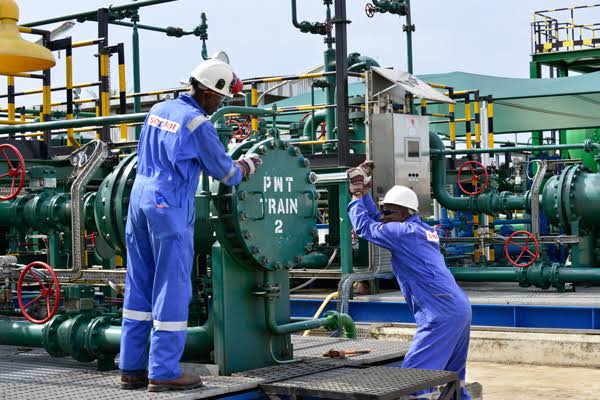Gas Supply to Geometric Power Resumes, as More People Now Receive Electricity
Seplat Targets 120,000bpd crude Oil Production

Oil and gas giant Seplat has announced its ambition to double its crude oil production capacity within six months. This follows their acquisition of assets previously held by ExxonMobil, who have withdrawn from Nigeria’s onshore oil sector.
Seplat’s Chief Financial Officer, Eleanor Adaralegbe, outlined this target in an interview with the Financial Times on Tuesday.
She stated that the London-listed company intends to increase output from roughly 50,000 barrels per day (bpd) to approximately 120,000 bpd within a six-month timeframe.
Adaralegbe suggested that these assets have received minimal investment until now. However, she assured that substantial growth opportunities will arise once Seplat takes full control.
It’s worth remembering that the London-listed firm finalised its purchase of ExxonMobil’s oil and gas assets in December. This followed a delay of over two years for approval from the Nigerian Upstream Petroleum Regulatory Commission.
The $1.28bn acquisition of Mobil Producing Nigeria Unlimited establishes Seplat as a leading domestic producer. The deal includes 11 onshore oil blocks, 48 oil and gas fields, three export terminals, and five gas processing facilities.
Adaralegbe reiterated that the assets have seen very little investment to date. She confirmed that Seplat anticipates significant growth potential upon assuming control.
According to Seplat’s Chief Executive, Roger Brown, these combined assets mean Seplat now controls 16% of Nigeria’s current production capacity.
He explained that the company will operate these assets in partnership with the state-owned Nigerian National Petroleum Company (NNPC), as mandated by Nigerian oil and gas industry regulations.
Brown expressed confidence in Seplat’s ability to collaborate with NNPC to boost overall production, a stated objective of Nigeria’s President Bola Tinubu.
“We have no concerns working with NNPC. There’s been a massive change with President Tinubu, realising that production is a great way of getting dollars into the country and supporting the currency,” Brown said.
Similarly, the firm’s Chief Operating Officer, Samson Ezugworie, pointed out that many Nigerian assets require time and investment for reactivation after periods of inactivity.
“We have over 600 wells drilled, and barely 200 of them are producing,” he said. “We have significant idle wells that need to be rejuvenated and brought back into production within a short time.”
Exxon’s sale is part of a trend of international oil groups exiting Nigeria’s challenging onshore and shallow water sector. This sector has been plagued by decades of environmental damage and, more recently, declining production.
Other international groups, including Italy’s Eni, Norway’s Equinor, and Adda Petroleum, have also withdrawn from the region.






